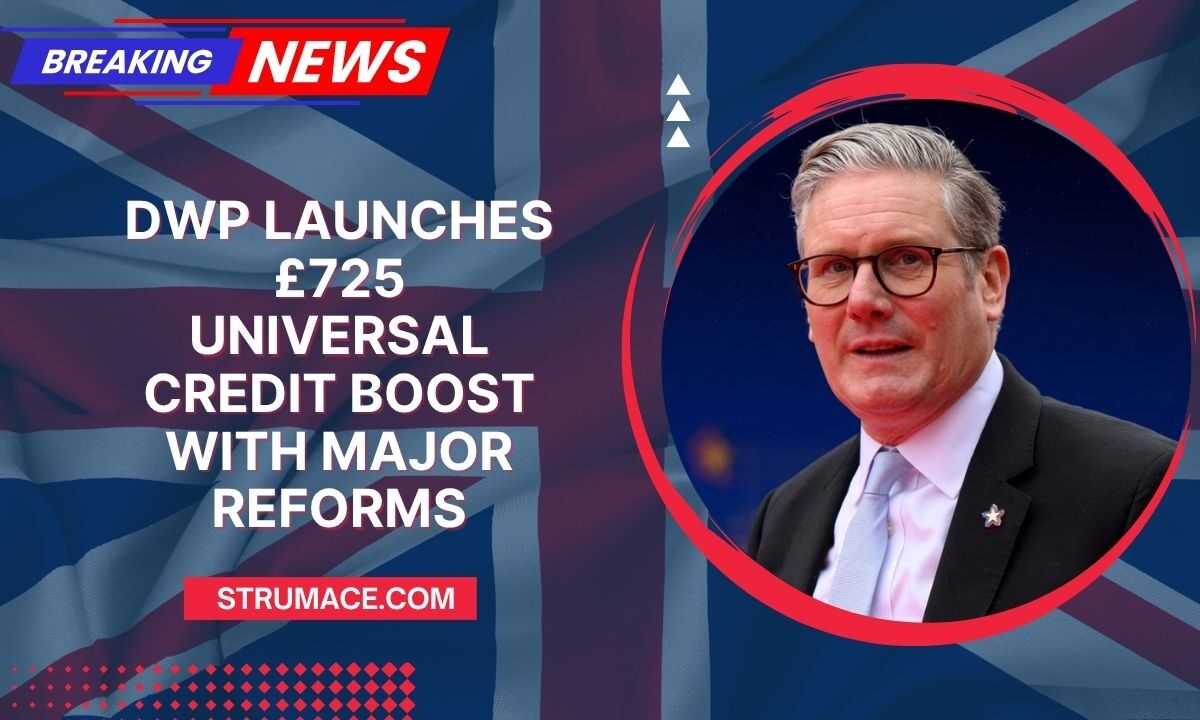The Department for Work and Pensions (DWP) has introduced a sweeping set of changes under the Universal Credit and Personal Independence Payment Bill, aiming to provide a £725 Universal Credit boost to millions across the UK by 2030.
While this brings welcome relief for many, it also introduces controversial adjustments, especially for those claiming health-related benefits.
Massive Universal Credit Increase Starts in 2026
Starting April 2026, the Universal Credit standard allowance will increase annually, outpacing inflation rates.
This increase primarily benefits single adults aged 25 and over, but other households will also gain from this financial uplift.
Planned Universal Credit Standard Allowance Increases
| Financial Year | Annual Increase (%) | Estimated Boost per Household |
|---|---|---|
| 2026–2027 | 2.3% | £140 |
| 2027–2028 | 3.1% | £195 |
| 2028–2029 | 4.0% | £230 |
| 2029–2030 | 4.8% | £275 |
| Total | — | £725 |
This marks the largest increase in Universal Credit since its introduction and is intended to help families and workers facing mounting cost-of-living pressures.
Health Benefit Reforms – A Shift for New Claimants
The most controversial element of the bill is the overhaul of health-related benefits, particularly the Limited Capability for Work and Work-Related Activity (LCWRA).
Key Changes to LCWRA from April 2026:
- Current Rate for Existing Claimants: £97 per week (frozen, no further increase).
- New Rate for Future Claimants: £50 per week.
- Impact: Nearly 50% reduction in support for new claimants with serious health conditions.
- Groups Affected: People with terminal illnesses, cancer, or chronic disabilities.
Existing recipients will not be impacted, but all new applicants will receive the lower weekly payment.
New Protections for Severely Disabled Individuals
To mitigate the effects of reduced support, the government is introducing a “no reassessment” category:
- Over 200,000 severely disabled individuals will be exempt from regular assessments.
- These claimants will continue to receive the full £97 per week without interruption.
This safeguard is designed to provide long-term financial stability to those with lifelong disabilities.
Changes to PIP and Qualification Criteria
The Personal Independence Payment (PIP) system is also being adjusted:
- A higher threshold will be required to qualify (e.g., scoring 4+ points on a single daily-living activity).
- A 13-week protection period is introduced for those transitioning between benefit statuses.
These measures aim to reduce fraudulent claims while tightening eligibility.
Winners and Losers – A Financial Breakdown
Estimated Financial Impacts by Category
| Category | Estimated Impact |
|---|---|
| Standard UC Claimants | Up to £725 gain by 2030 |
| New Health-Condition Claimants | Approx. £47/week reduction |
| Severely Disabled (Exempt Group) | Retain full support |
| Govt. Forecasted Savings | Up to £5 billion annually |
While over 4 million households stand to gain from the standard allowance boost, nearly 3 million with fluctuating or moderate disabilities could lose out.
Public Response and Concerns
The reforms have triggered sharp criticism from disability advocacy groups. There are growing concerns that:
- Food insecurity may worsen
- Household energy bills may become unaffordable
- More individuals will rely on food banks
Advocates argue the reforms may unfairly penalize those who don’t meet the “severely disabled” classification but still face daily challenges.
Employment Focus: £1 Billion Work Support Program
To balance welfare reform with workforce participation, the DWP has allocated £1 billion toward employment support:
- “Pathways to Work” program to help claimants transition to employment.
- “Right to Try” initiative allows people to test jobs without immediately losing benefits.
This is part of a broader government strategy to reduce long-term benefit dependency.
The DWP’s £725 Universal Credit boost will bring meaningful support to millions of households by 2030.
However, the reforms are a double-edged sword—offering financial relief to many while reducing support for new health-related claimants.
As the new system unfolds from April 2026, clarity and careful implementation will be key to balancing economic sustainability and social fairness.
FAQs
When does the £725 Universal Credit boost begin?
The boost starts in April 2026 and will be gradually applied until 2030.
Will current LCWRA claimants lose their full payments?
No, existing claimants will continue receiving the £97/week, but new applicants will only receive £50/week.
Who qualifies for the no-reassessment exemption?
Over 200,000 severely disabled individuals will be exempt from capability reviews and will retain higher support levels.




